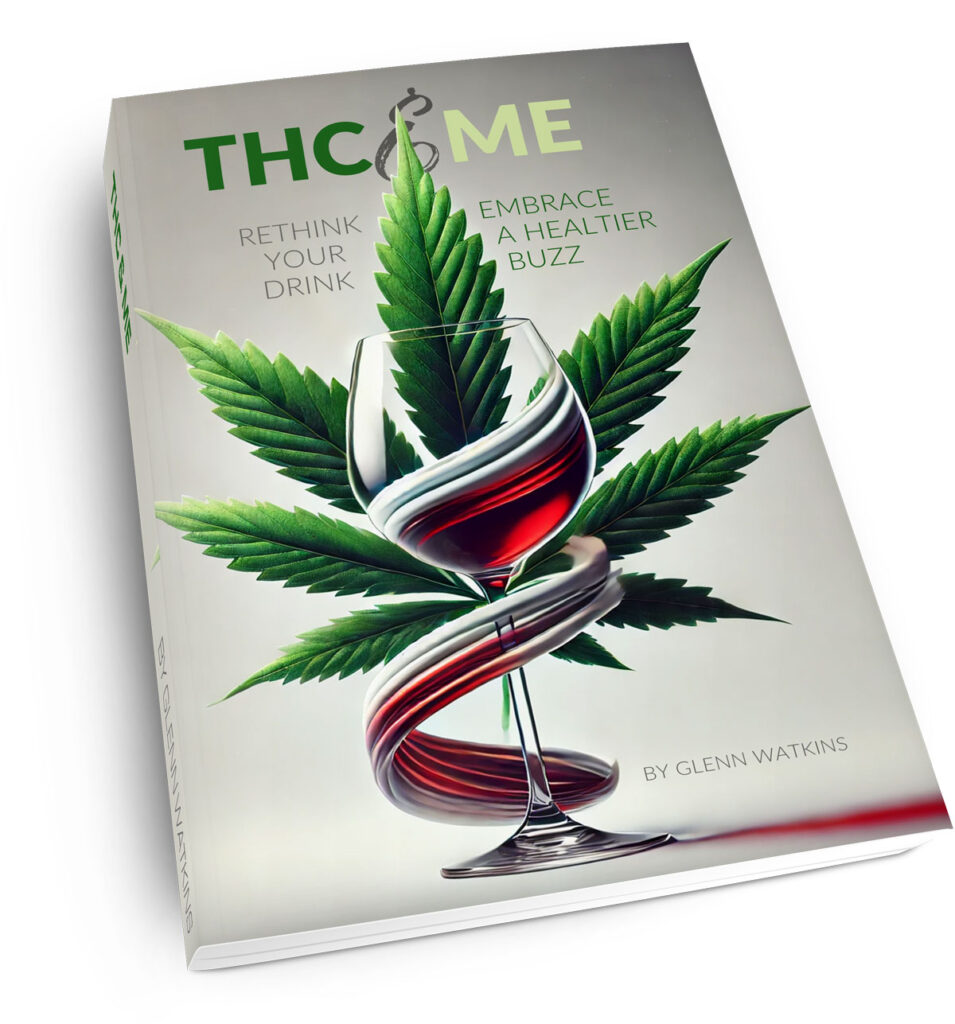
The Distinct THCA Advantages That Surpass THC Insights
Do you feel overwhelmed by mixed information about THC and its alternatives? This post outlines THCA’s unique benefits, including its safety profile and legal standing in contrast to THC. Readers will understand how THCA may offer advantages for health and well-being while tackling common concerns over traditional marijuana use. The article helps clear confusion and provides a clear view of what each component offers.
Key Takeaways
- Thca has a unique chemical structure that supports controlled dosing
- Clinical data shows thca reduces inflammation and aids neural protection
- Thca offers a non-psychoactive option for safe therapeutic applications
- Controlled thca use minimizes cognitive impacts and dependency risks
- Legal guidelines favor thca’s use in regulated medical settings
Understanding THCA and Its Unique Benefits

Understanding the molecule structure, this section examines THCA’s unique composition and its impact on trichome function. It reviews how absorption and interactions differ from tetrahydrocannabinol’s, offering a distinct approach to managing disease. These insights provide a foundation for further discussion on how THCA benefits the body.
Chemical Composition and Its Impact
The molecular structure of THCA reveals a unique percentage of active compounds that impact behavior distinctly from other cannabinoids. Its chemical configuration can alter the body’s response to treatments such as tincture formulations and may support efforts in minimizing substance abuse risks while reducing the need for combustion methods during consumption:
| Component | Percentage | Application |
|---|---|---|
| THCA | Varied% | Tinctures and alternatives to combustion |
| Other Cannabinoids | Adjusted% | Support for behavior management |
Research in the field of cannabinoid science confirms that this distinct composition plays a role in modifying pharmacological behavior, making THCA a favorable option for those seeking alternatives to traditional substance abuse treatments. Clinical insights demonstrate that using THCA in precise tincture preparations enables controlled delivery, which can be beneficial for users avoiding the hazards linked to combustion.
How THCA Interacts Differently With the Body
THCA interacts with the body uniquely by engaging cannabinoid receptors in a way that enhances target accessibility for alternate treatment forms such as lotion applications. Its interaction reduces inflammation and supports controlled dosing, which may assist in preventing relapse compared to other substances.
This interaction offers distinct benefits similar to those seen in resin-based formulations, ensuring improved user safety and practicality for medicinal purposes:
| Component | Effect | Application |
|---|---|---|
| THCA | Reduction in inflammation | Lotion and resin formulations |
| Receptor Interaction | Improved accessibility in treatment | Aid in relapse prevention |
THCA Benefits That Outshine THC

THCA offers unique therapeutic properties that reduce inflammation, provide neuroprotective benefits, and serve as a precursor with controlled potency. Its non-psychoactive benefits lower risk compared to traditional options, easing pressure on patients. This section compares thca vs thc while outlining its medical advantages and expert insights.
Therapeutic Properties of THCA
THCA presents significant therapeutic potential with a focus on controlled dose delivery, which aids in improved symptom management. Industry professionals, including a knowledgeable budtender, highlight THCA’s effectiveness under strict regulation and policy, fulfilling its promise for safer alternatives.
Clinical observations support THCA’s role in reducing inflammation and protecting neurological pathways. Such insights offer clear guidance in establishing reliable dose protocols, ensuring that the promise of enhanced therapeutic outcomes aligns with current policy standards.
Non-Psychoactive Benefits for Medical Use
THCA offers non-psychoactive benefits for medical use by supporting improved memory retention and reduced reliance on delta-8 based substances. It provides a safer option compared to hash oil consumption while acting as a mild stimulant that lessens stress on the lung during treatment:
| Aspect | Benefit | Application |
|---|---|---|
| Memory | Improved retention | Therapeutic protocols |
| Delta-8 | Safer alternative | Non-combustible formulations |
| Hash Oil | Reduced dependency | Medical formulations |
| Stimulant | Mild effect | Symptom management |
| Lung | Lower exposure | Non-smoking methods |
THCA’s use in controlled medical settings has demonstrated improvements in overall wellbeing, with clinical examples showing its role in reducing inflammatory responses. Its non-psychoactive nature makes it an attractive choice for patients seeking relief without the standard effects associated with traditional alternatives.
Potential Anti-Inflammatory Effects
The distinct nature of THCA shows promising anti-inflammatory effects that support effective therapy for various conditions. Experts note that this cannabinoid, when processed through proper decarboxylation, works as a consistent agent in reducing inflammation and alleviating symptoms, insights found on platforms like Leafly and detailed in a useful thc ebook.
Scientific observations reveal that THCA, unlike its psychoactive counterpart, acts to calm inflammatory responses, aiding those undergoing targeted therapy. This controlled process, backed by clear data and available through reputable sources including Leafly and comprehensive THC ebooks, offers a reliable option for anyone seeking a cannabinoid with structured benefits.
Neuroprotective Characteristics
Research indicates that THCA presents neuroprotective characteristics that support the brain’s function as an effective dietary supplement for a patient managing stress. This cannabinoid works with enzymes to facilitate beneficial biochemical processes that may aid in maintaining neural health.
Health experts suggest that THCA holds promise for patients looking for non-psychoactive support in their wellness routine, comparable to benefits in cooking and enzyme regulation practices. Its neuroprotective properties extend to managing stress responses and improving overall neurological resilience.
Legal Status of THCA Compared to THC

State regulations and legal implications shape THCA’s status, with clear guidelines for its medical use approvals. The overview highlights key aspects such as pain management, vomiting relief, seizure control, and appetite stimulation. A trusted cannabinol guide informs readers on legal nuances that support informed decisions in addressing these health concerns.
State Regulations and Legal Implications
State regulations vary greatly when comparing THCA and THC, with agencies often relying on rigorous research to set clear boundaries. Recent findings indicate that controlled acid formulations of THCA may offer efficient solutions for patients seeking relaxation and relief from conditions like nausea, reducing concerns during a drug test.
Experts note that legal implications surrounding THCA emphasize its distinct nature, as its regulated use aligns with policies supporting medicinal benefits. Case studies show that users benefit from THCA’s predictable response profile, particularly in alleviating nausea and promoting relaxation, all while maintaining compliance with evolving legal standards.
Medical Use Approvals for THCA
Medical use approvals for tetrahydrocannabinolic acid have received careful review by regulatory agencies, with evidence suggesting its potential benefits in reducing dependency on other drugs and in managing opioid use disorder. These approvals stem from clinical evaluations that assess the compound’s efficacy in balancing brain function and moderating heart rate:
- Enhanced control of heart rate observed in clinical settings
- Support for brain activity contributing to reduced opioid use disorder symptoms
- Improved delivery methods minimizing risks associated with drug consumption
Observational studies support the safe administration of tetrahydrocannabinolic acid, highlighting its ability to offer a predictable therapeutic profile that aids in managing chronic conditions while targeting the brain’s response system. Experts note that its medical use approvals serve as a promising step forward in developing alternatives that complement existing drug therapies effectively.
THCA Safety Profile in Contrast to THC

THCA shows fewer cognitive risks and a lower incidence of dependency compared to THC. Its chemical reaction under controlled substances act guidelines improves cognition and reduces pain, a key advantage highlighted by sources like weedmaps. The following sections detail these safety attributes and provide expert insights into THCA’s non-psychoactive benefits and controlled use.
Fewer Cognitive Risks
THCA exhibits a lower impact on cognitive functions when compared to THC, which is attributed to its distinct chemical substance properties involving a carboxylic acid group that aids in safe absorption. This characteristic ensures that the weight of negative side effects on the cell metabolism is minimized, offering a promising alternative for those familiar with cannabigerol applications:
- HARNESS: Improved cell regulation and reduced weight on neural processes
- STRUCTURE: Unique carboxylic acid configuration supporting safer use
- ALTERNATIVE: Lower cognitive risks in formulations compared to THC
Clinical insights reveal that THCA’s controlled composition effectively minimizes cognitive disruptions, distinguishing it from its active counterparts. Experts emphasize that its unique profile—supported by ongoing research in chemical substance interactions and cannabigerol benefits—provides a safer remedy in therapeutic settings.
Lower Incidence of Dependency
THCA shows a lower risk of dependency compared to THC due to its unique chemical compound structure that interacts differently with each receptor, reducing the likelihood of habitual use. Industry experts note that the lower dependency risk makes THCA a preferred choice for patients seeking alternative options to benzodiazepine prescriptions and traditional bud derivatives.
Clinical observations support that THCA’s controlled composition contributes to a balanced time perception in users, a factor that may prevent the rapid onset of dependency seen with other substances:
- Reduced receptor engagement
- Safer alternatives to benzodiazepine use
- Improved chemical compound interactions
The distinct profile offers a promising pathway for those addressing dependency concerns while managing symptom relief.
Practical Applications of THCA Over THC

This section highlights THCA’s use in culinary cannabis and its role in natural remedies. The analysis pays attention to minimal side effect risk and promotes neuroprotection with effective analgesic outcomes that ease the mind. The following content offers practical insights for culinary creations and therapeutic applications, providing straightforward strategies for integrating THCA over THC.
Use in Culinary Cannabis
THCA offers promising use in culinary cannabis, providing a robust alternative for consumers seeking unique oil infusions that maintain the integrity of its chemical structure. Its controlled heat sensitivity ensures that key benefits are preserved, reducing risks of unwanted effects like paranoia while delivering a consistent flavor profile.
Industry professionals have observed that using THCA in cooking can result in more predictable outcomes compared to THC, as its chemical structure allows for a stable release when paired with moderate heat:
| Factor | Advantage | Application |
|---|---|---|
| Oil Infusions | Stable ingredient integration | Culinary recipes |
| Heat Management | Retention of benefits | Precise temperature control |
| Consumer Safety | Balanced effects | Reduced risk of paranoia |
Benefits in Natural Remedies
The use of THCA in natural remedies provides an appealing alternative for those seeking targeted relief. Research highlights that its interaction with the cannabinoid receptor and influence on the endocannabinoid system offer consistent support in managing symptom perception and overall well-being, without escalating risks under current law.
Health experts note that THCA, when combined with compounds like cannabigerolic acid, helps deliver a controlled therapeutic effect that suits natural remedy applications. This approach offers a practical option for individuals looking to integrate reliable cannabinoid benefits into their routine, ensuring safe and predictable results supported by solid clinical observations.
FAQs About THCA and THC Benefits

This section addresses key questions on THCA advantages versus THC. It reviews if THCA can offer therapeutic effects comparable to THC, its potential safety for long-term use, and its influence on mental clarity. Clear evidence supports these points while the guide to hhc connects aspects of mood, sleep, and addiction management to practical benefits.
Can THCA Provide Therapeutic Effects Like THC?
The analysis shows that THCA presents therapeutic benefits similar to those of THC while offering a lower risk profile for users. Research in cannabinoid science reveals that THCA supports inflammatory reduction and controlled dose delivery, providing a safe option for targeted treatments.
Experts in the field note that THCA interacts with cannabinoid receptors to foster neuroprotective effects and consistent symptom management. Practical applications in therapeutic settings indicate that its unique composition aids in optimizing treatment outcomes for patients seeking alternatives to conventional substances.
Is THCA Safer for Long-Term Use?
Experts suggest that THCA may present fewer risks when used over an extended period, thanks to its controlled interaction with cannabinoid receptors. Its non-psychoactive profile supports better overall health management and offers a favorable safety profile compared to THC.
Industry professionals have observed that the unique composition of THCA contributes to reduced side effects and a more predictable therapeutic response in long-term use. Clinical evidence indicates that THCA can be integrated into treatment protocols with increased assurance in its stability and safety features.
How Does THCA Affect Mental Clarity?
THCA supports mental clarity by maintaining a balanced interaction with cannabinoid receptors, which may result in steady cognitive responses and increased focus during therapeutic applications. Observations among professionals indicate that using THCA can contribute to maintaining clear thought patterns while benefiting overall wellness.
The controlled composition of THCA aids in minimizing cognitive side effects, allowing users to experience clear thinking during treatment. Clinical insight shows that its non-psychoactive profile helps keep mental functions steady, offering a practical alternative for those seeking clear mind benefits through regulated dosing.
Conclusion
THCA provides a safer and more controlled option by lowering cognitive risks and reducing dependency compared to THC. Its unique molecular structure supports consistent therapeutic outcomes through targeted dose delivery and enhanced neuroprotection. The compound actively engages with cannabinoid receptors to lessen inflammation and improve overall well-being without common risks associated with combustion methods. This focused approach highlights THCA as a promising alternative for those seeking reliable health benefits over traditional alternatives.

